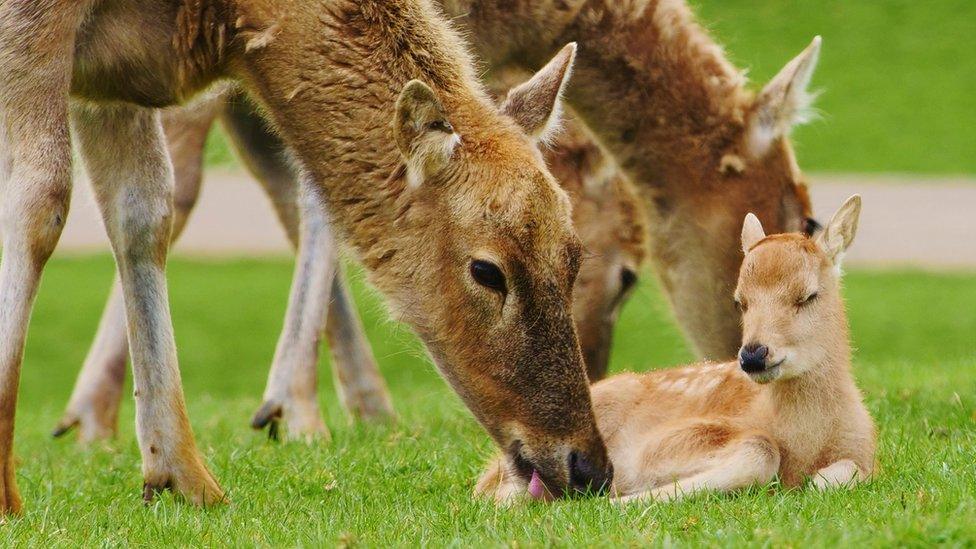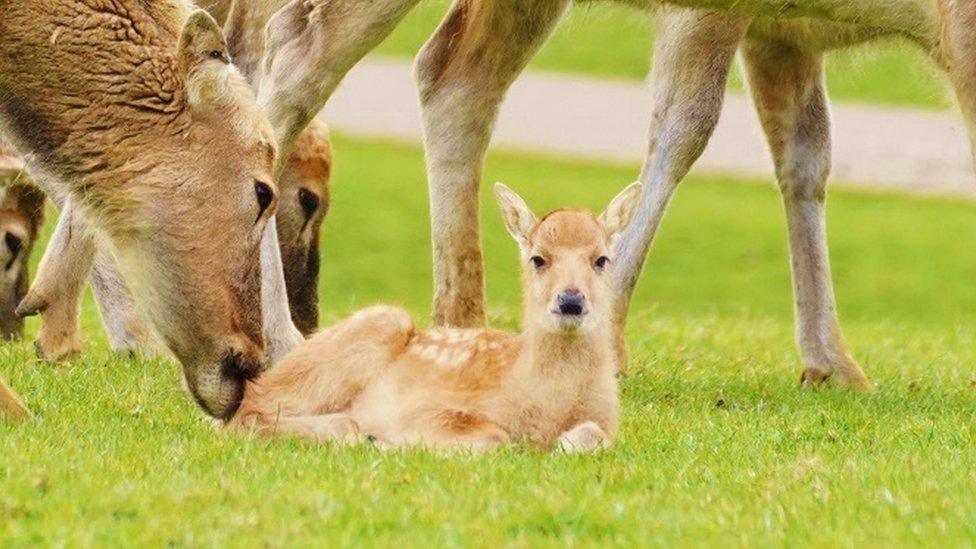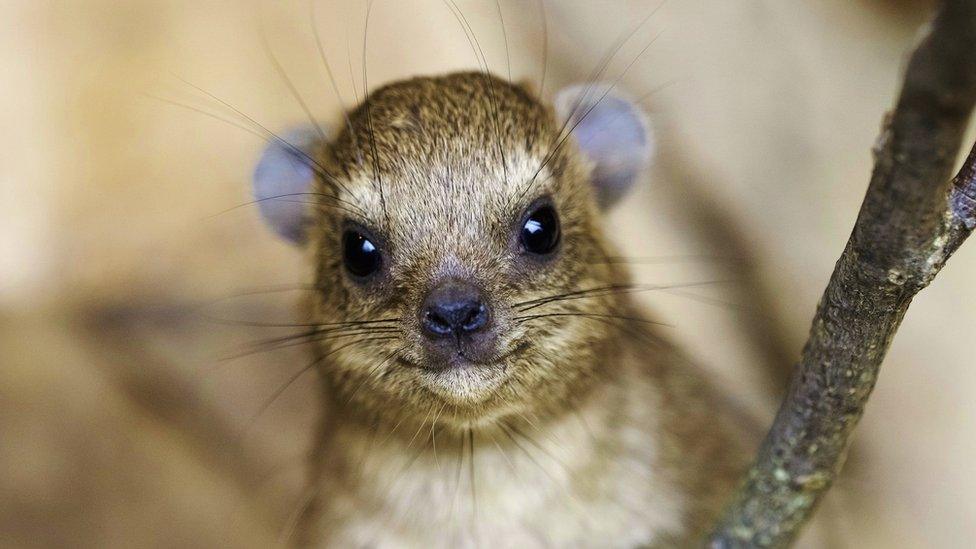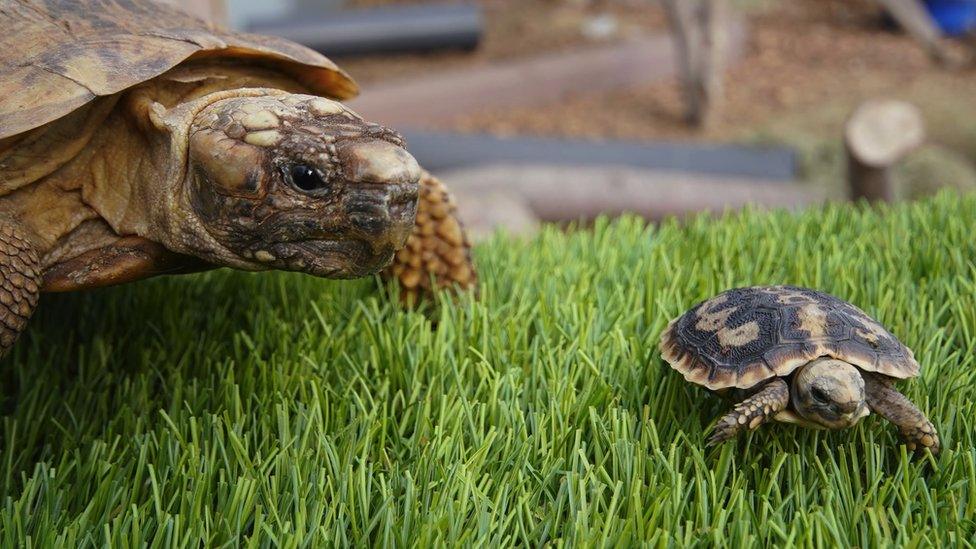'Once extinct in the wild' Pere David’s deer fawn born at Longleat
- Published

Pere David's deer are named after the French Jesuit Pere Armand David who spotted them in China in 1865
A deer fawn, once extinct in the wild, has been born at a safari park.
The week-old Pere David's fawn was born at Longleat in Wiltshire as part of an international captive breeding scheme.
Pere David's deer are originally from China and at one time there were only 18 left in the world in captivity.
There are now more than 2,000 in the wild in China and an estimated 8,000 worldwide, making it one of the most successful reintroduction programmes in history.
With giant antlers and a head shaped like a horse, the Pere David's deer has a donkey's tail, hooves like a cow and webbed toes for swimming.
Longleat has 10 and the fawn is the first to be born at the safari park in 2021.

Floods and social unrest in China nearly wiped out the breed, except for 18 that were sent to England from which they are all now descended
Keeper Ian Turner said: "Pere David's deer is a prime example of the importance of captive breeding programmes run by zoos and safari parks - without which it would almost certainly have become extinct."
The species is named after the French Jesuit missionary and naturalist Pere Armand David who first spotted it in 1865 in the grounds of an imperial park near Beijing.
In the following years several pairs were transported from China to Woburn in Bedfordshire, where they bred successfully.
In 1900, a combination of severe flooding and the Boxer Rebellion wiped out the entire population in the Imperial Hunting Park in China, making the 18 animals sent to England the only ones left on the planet.
In 1986, 39 Pere David's deer, including four bred at Longleat, were released into the DaFeng Milu reserve near Beijing, close to where they had been found by David more than a century earlier.
Related topics
- Published5 April 2020

- Published13 March 2021

- Published16 February 2021
